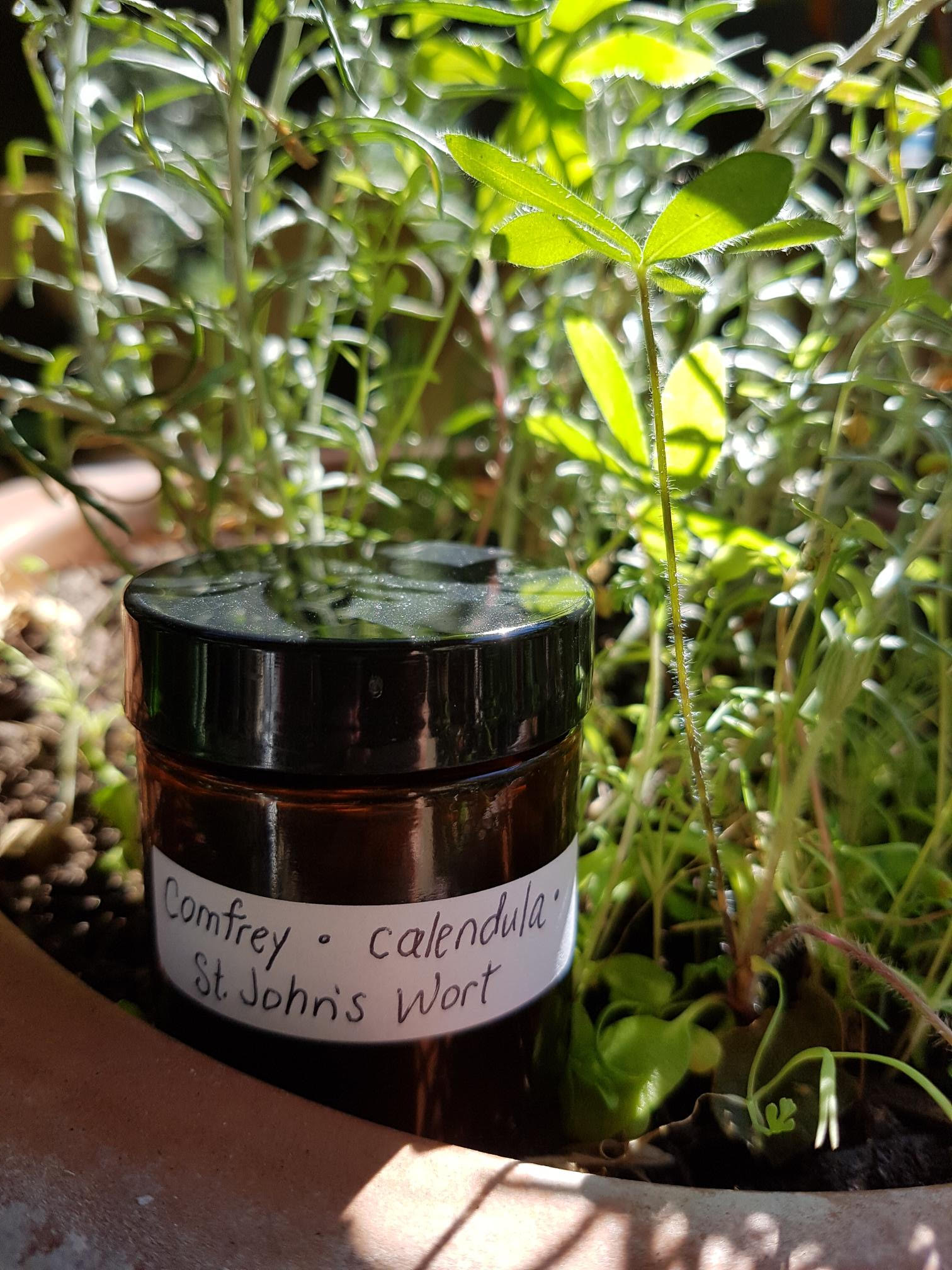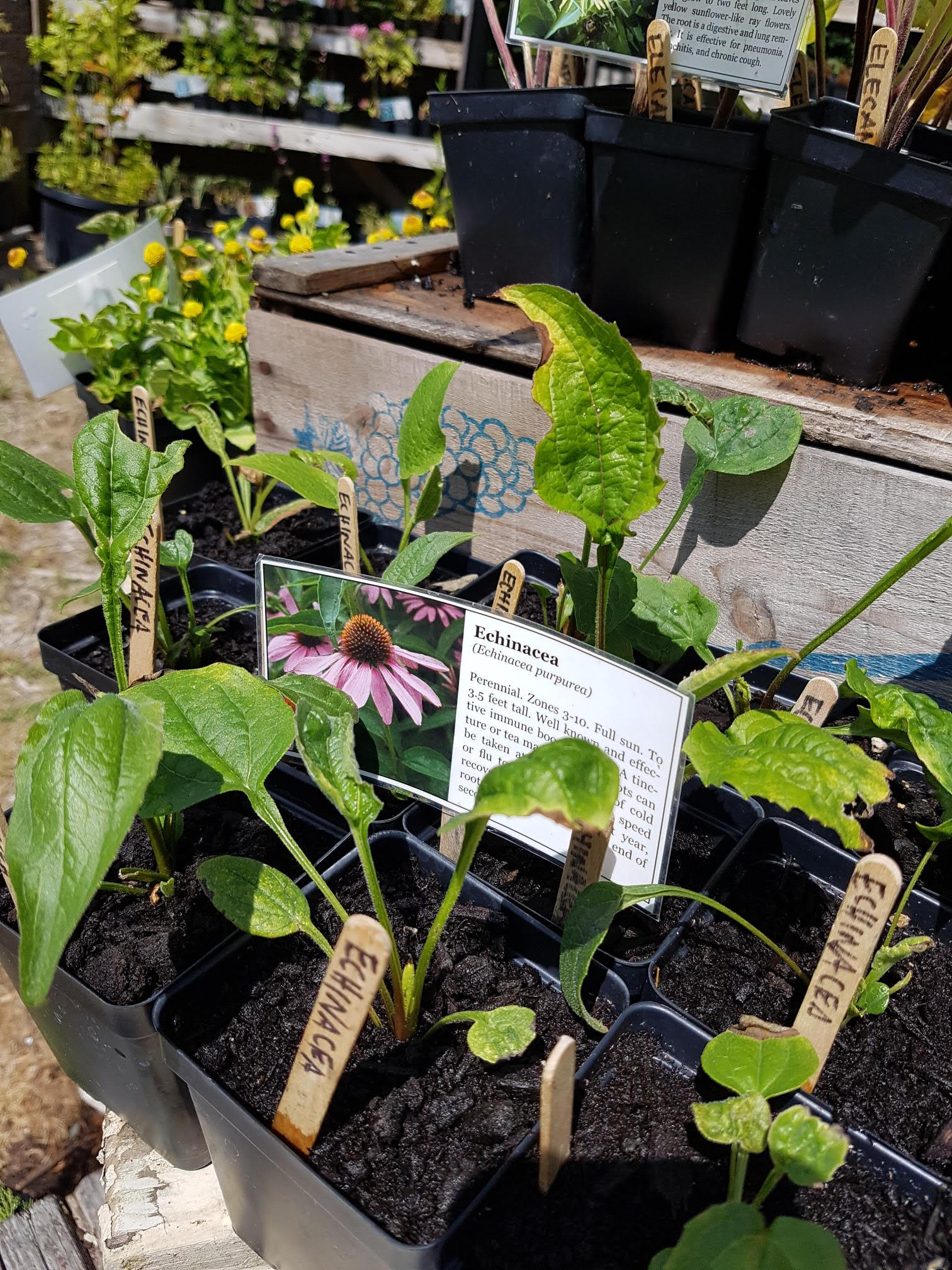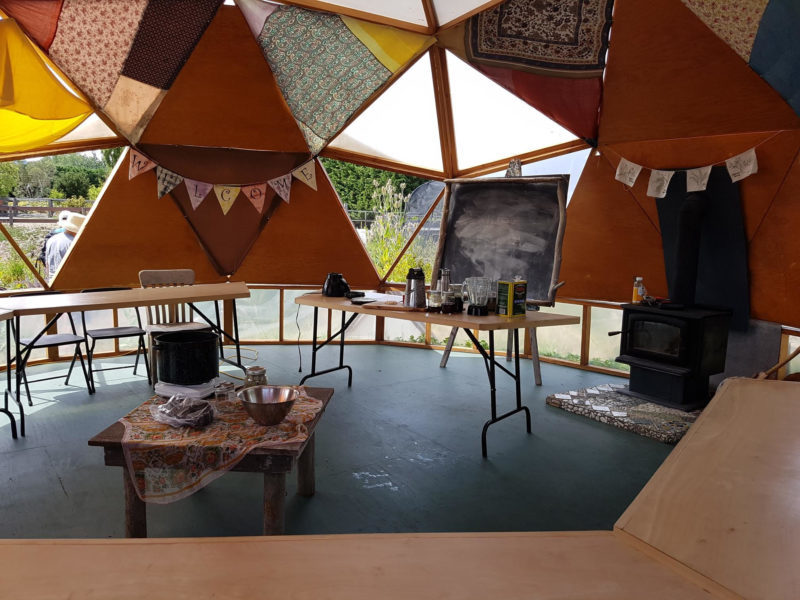Medicinal Plants
This blog post has been written by Pacific Horticulture Student: Rachel Lavrisa
The Fireweed Farm & School, located on the Saanich Peninsula, traditional territory of the W̱SÁNEĆ peoples, is dedicated to “rekindling the connection between plants and people”. You might wonder, what exactly does this mean? When  Jessy Delleman first began the Fireweed Farm in 2014, she sought to create a space that reconnected people to the medicinal and healing qualities that plants can offer. The Fireweed Farm & School “grows rare and hard to find medicinal herb plants and seeds, crafts high quality herbal products, and provides education on herbal medicine, wildcrafting, herb growing and nature-based arts”. Growing around 200-250 different species of plants on site, the variety of plants translates to an incredibly wide-range of medicines that are crafted and sold through Ravensong Seeds & Herbals (on-site and online shop). Salves, tinctures, honeys, syrups, oxymels, hydrosols and smudges are all crafted from medicinal plants that were grown on the Farm, and provide relief from a multitude of health concerns. On a field trip to the Fireweed Farm, the students of the HCP were lucky enough to make an all-purpose healing skin salve to take home. This salve was made from comfrey-infused oil (for skin cell growth and pain relief), calendula-infused oil (reduces pain, swelling, promotes wound healing), and St John's wort-infused oil (for wound-healing), along with beeswax shavings to thicken the infusion to a salve. It was a delicious treat for the scrapes and cuts on my arms after battling rose bushes!
Jessy Delleman first began the Fireweed Farm in 2014, she sought to create a space that reconnected people to the medicinal and healing qualities that plants can offer. The Fireweed Farm & School “grows rare and hard to find medicinal herb plants and seeds, crafts high quality herbal products, and provides education on herbal medicine, wildcrafting, herb growing and nature-based arts”. Growing around 200-250 different species of plants on site, the variety of plants translates to an incredibly wide-range of medicines that are crafted and sold through Ravensong Seeds & Herbals (on-site and online shop). Salves, tinctures, honeys, syrups, oxymels, hydrosols and smudges are all crafted from medicinal plants that were grown on the Farm, and provide relief from a multitude of health concerns. On a field trip to the Fireweed Farm, the students of the HCP were lucky enough to make an all-purpose healing skin salve to take home. This salve was made from comfrey-infused oil (for skin cell growth and pain relief), calendula-infused oil (reduces pain, swelling, promotes wound healing), and St John's wort-infused oil (for wound-healing), along with beeswax shavings to thicken the infusion to a salve. It was a delicious treat for the scrapes and cuts on my arms after battling rose bushes!
Learning about the medicinal properties of plants holds a particular importance to me, as my aim is to explore and work in the field of horticultural therapy in the future. Prior to becoming a student at the HCP, I lived on Haida Gwaii and worked with the local transition house providing one-on-one and group counselling for women who had or were currently experiencing violence. I often found that activities and counselling-work done in the woods, on the beach, picking berries, sitting around a fire, making medicine, and preparing food, was when the best work was done. Trauma has a way of making people feel isolated and alone. When we reconnect with nature, we feel a part of something much bigger than ourselves, and this creates feelings of comfort and safety. Working with medicinal plants adds  even another layer to this: we grow the plants that provide us with medicines that calm our nerves, that stabilize our thoughts, that boost our immune systems, and so on. We become a part of a circle, a natural growing cycle, where we tend to and care for plants that nurture us in return with their medicines. Trauma also has a significant impact on our ability to be present, to be in the moment. By doing therapeutic work in a garden setting, all of our senses can be engaged in a safe and peaceful way: listening to the birds sing, seeing the rainbow of colourful flowers, touching the soft, spiky, leathery foliage, smelling herbs like rosemary and thyme, and tasting the fruits and vegetables we grow! Plants can help us to practice mindfulness, to feel connected and a part of something greater than ourselves. It empowers us by being growers of our own medicines.
even another layer to this: we grow the plants that provide us with medicines that calm our nerves, that stabilize our thoughts, that boost our immune systems, and so on. We become a part of a circle, a natural growing cycle, where we tend to and care for plants that nurture us in return with their medicines. Trauma also has a significant impact on our ability to be present, to be in the moment. By doing therapeutic work in a garden setting, all of our senses can be engaged in a safe and peaceful way: listening to the birds sing, seeing the rainbow of colourful flowers, touching the soft, spiky, leathery foliage, smelling herbs like rosemary and thyme, and tasting the fruits and vegetables we grow! Plants can help us to practice mindfulness, to feel connected and a part of something greater than ourselves. It empowers us by being growers of our own medicines.



